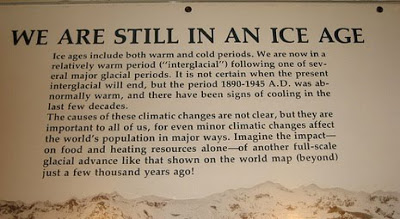By Thomas Richard
I always find it interesting when activists and dissidents have neither formal scientific education, nor degrees in the exacting field of climatology. What they do have is a creepy, devoted following willing to do whatever they ask. Especially if that group believes only they can save the Earth. Enter Jim McKibben. He’s the idea guy behind 350.org and is little more than an “American environmentalist and writer” who preys upon the uninformed and the easily influenced. In short, he targets the youth of the world who don’t have the the requisite experience to spot a charlatan. McKibben lectures his impressionable followers on what he considers safe levels of carbon dioxide, then footnotes it all with end-of-the-world prognostications. Ibid, repeat. Even more worrying is that he specifically targets the world’s youth, exacerbating this group’s natural tendency to making risky chances, protest unconditionally, challenge authority, and place unconditional faith in a higher power. No, not God. McKibben.
…analysts and activists detect a groundswell of anger, channelled through the Internet and voiced especially by the young, demanding action on global warming. [source]
Happy with his grassroots organization, McKibbin boasts that his rank and file apostles are both educated and religious:
“It has worked beyond our wildest expectations,” McKibben told AFP. “We’ve basically got the whole world organised, much of it for the first time. October 24 is going to be, by a very large margin, the most widespread day of environmental action ever.” Two demographic profiles dominate among 350.org‘s rank-and-file, McKibben said: educated youth and people linked by religion. “I was aware of climate change but didn’t know what I could do,” Gan Pei Ling, 22, a student at Tunku Abdul Rahman University in Malaysia, said this month at climate talks in Bangkok, where she had come to lobby negotiators. Meeting a small node of activists in Malaysia gave her the courage to speak out, and 350.org put her in touch with like-minded young people across Asia and beyond. Gan Pei Ling and hundreds of other 20-something activists who converged on Bangkok — many sporting T-shirts asking “How Old Will You Be in 2050?” — see global warming as an injustice toward the poor and the young. “Older people don’t seem to care,” said Lokendra Shrestha, a 28-year-old sociology student from Nepal, where vanishing glaciers threaten much of Asia’s water supply.
And for those who still doubt that global warming is NOT a religion, here’s a little perspective and some direct quotes:
Religion is also emerging as a lightning rod. “Climate has risen up massively as an issue of concern in religious communities,” said Stuart Scott, a former statistics professor from Hawaii who has crisscrossed the globe garnering support for his . His cause got a big boost when the declaration was included in an ecumenical ceremony at the UN Nations last month ahead of the world’s first climate summit. “It would be a huge mobilising force if people started to frame the issue of climate change in religious terms,” noted Newell.
Peter Newell, with a simpatico relationship to McKibbin, is a professor at the University of East Anglia in England. He also believes that anarchy begins at home:
“As evidence mounts of the severity of the threat, civil society groups will be fuelled by the urgency of acting now to avoid the worse consequences of a problem for which future generations will surely hold us accountable…We can expect the continued and expanded use of all resources available to them — legal and non-legal, constructive and coercive, national, regional and international.”
A rule of war is turning the hearts and minds of the most vulnerable and convincing them your cause is right. It’s about creating apostates of rational thinking. It’s teaching the young that the science is settled, the debates are over, and the only thing left to do is convince more people the end is nigh. In modern societies, we call this a cult.Source


 Thomas Fuller, noted
Thomas Fuller, noted